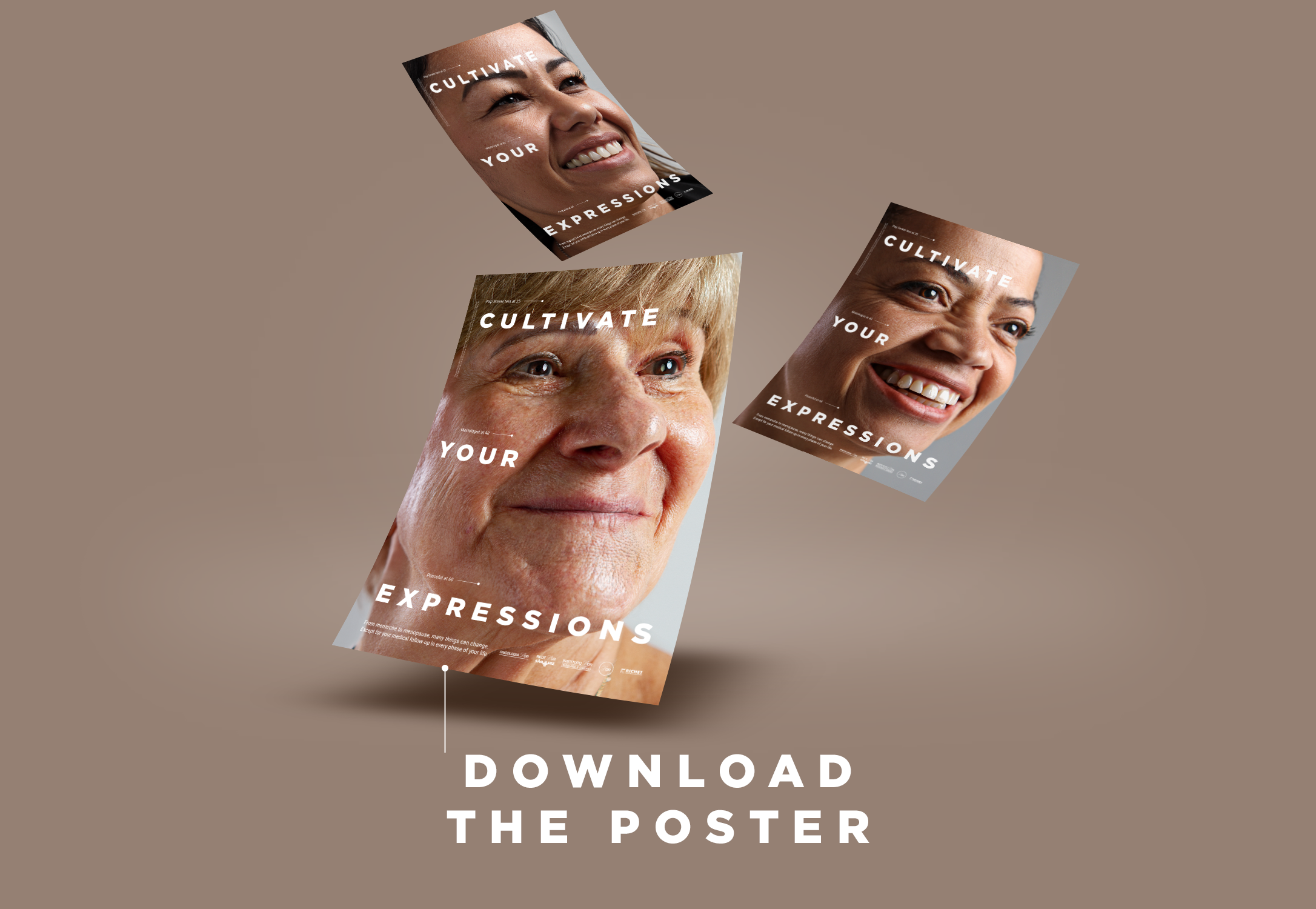From menarche to menopause, many things can change. And medical follow-up must be present in every single change. Maintaining healthy habits and trusting preventive medical exams might be the secret for you to keep a young body and mind.
Your age requires specific care.
For healthier aging, you should cultivate good habits and take some precautions from an early age.
Follow the medical recommendations and keep your exams up to date.
Up to
18 years old
Childhood and adolescence bring several biological changes. During this phase, follow-up by a pediatrician is fundamental to ensure a healthy adult life.
Fulfilling the vaccination schedule, having good eating habits and practicing physical exercises are investments for life. Screening tests are only recommended when there is a family history.
From 19 to 29 years old
The change in style expresses your adult life. New haircuts, clothing styles and tattoos are among the main changes during this phase. Healthwise, changes should be properly monitored by specialists.
From the age of 20, it’s already important to start following the lipid profile, which shows the rates of total cholesterol, LDL and HDL, as well as triglycerides, which can lead to cardiovascular diseases in the future.
?
From 25 on, it is recommended to start getting the Pap Smear test, one of the most important tests for your health. The test detects changes in the cervix, such as inflammations and infections by the human papilloma virus, HPV, which can give rise to cancer. The periodicity of the examination is defined according to its results and can keep on until 65 years old.
?
During this period, routine can hinder many things, except for healthcare. 7 out of 10 women feel they don’t have enough time during their everyday lives. And, maybe due to this, about 20% of Brazilian women do not visit the gynecologist.
Cultivate empathy as an expression and encourage other women to keep check-ups up to date.
From 30 years old on
If pregnancy is part of your plans, it is important talking to your doctors about the alternatives offered by medicine.
From 35 on, family history of breast cancer must be observed more closely. Carry out the exams according to your mastologist’s recommendations.
From 40 years old on
All the previous care protecting your life must be maintained. But this is where new care comes up and attention needs to be redoubled.
At 40, mammography comes to the list of essential exams. It helps detect early breast cancer injuries, thereby, increasing the chances of cure by more than 90%.
Also, from this age group, appointments with the ophthalmologist for measuring intraocular pressure should be added to the healthcare schedule. Glaucoma evolves silently and should be diagnosed before causing visual loss.
From 45 on, attention also must be given to diabetes, mainly in women with a BMI (Body Mass Index) above 25. Do you want to learn how to calculate your BMI?
From 50 years old on
At this age, in addition to the exams recommended above, screening for colorectal cancer should be considered – which should be maintained until 75 years old or according to medical advice.
At menopause, bone densitometry should be added to your medical examination routine to identify possible signs of osteoporosis. This risk is bigger starting at this phase of life.
For young people of all ages
It is important to always keep blood pressure under control. After all, hypertension does not usually cause symptoms, except when it has already brought damage to the body. Caused by different factors, such as a sedentary lifestyle, bad eating habits and stress, it needs to be an important topic every time you go through medical examinations.
And remember: rely on Rede D’Or São Luiz services at all times.
Schedule the necessary medical examinations at the nearest unit.
Technical consultant:
Dr. Rafael de Castro Penalva Vita
CRM (Regional Medical Board): 11872 BA



